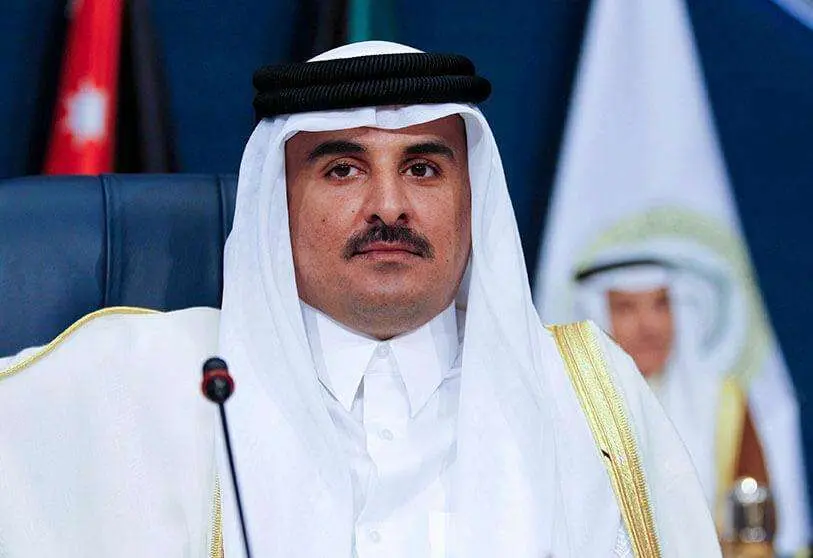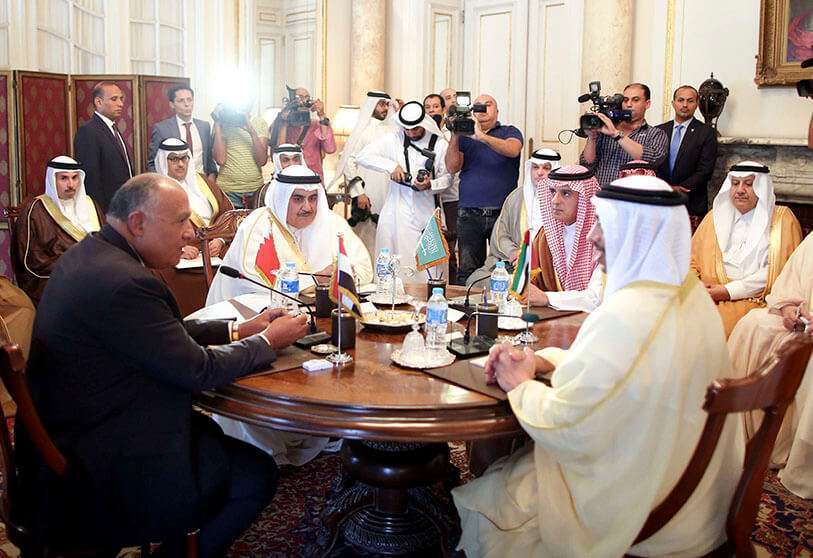Qatar and Arab quartering, a conflictive relationship in times of pandemic

One crisis after another. In recent hours, Saudi Arabia, Bahrain, Egypt and the United Arab Emirates have called on Doha to abandon its "policy of supporting terrorist organisations and to stop providing extremist groups with platforms to spread their message". The Arab quartet decided in June 2017 to sever its diplomatic ties with Qatar, isolating the small emirate in the Persian Gulf. This estrangement is one of the most serious diplomatic crises between the Gulf countries in recent years.
Qatar, according to the Arab quartet, has been giving various extremist organisations the opportunity to appear in its media to propagate their ideology. This has been pointed out in a joint letter sent by the representatives of these countries to the United Nations in response to the "misleading accusations" made by the Qatari delegate and other international organisations, according to the digital Asharq Al-Awsat.
The representatives of the quartet pointed out in this letter that the measures taken by their states against Doha have been in response to "Qatar's continued support for terrorism, extremism and interference in the internal affairs of neighbouring countries". In this letter they clarified that "these measures have been taken in full conformity with international law" and criticised the statements made by the Qatari delegate before international bodies as "misleading".

Diplomats from Saudi Arabia, Bahrain, Egypt and the United Arab Emirates explained that although the Council's quarterly debate on the Middle East "is an important forum for discussing the crises afflicting the region, it is disappointing that the Qatari delegate has tried to abuse this open debate". "Contrary to the lies mentioned by the Qatari delegate, the measures taken by the countries of the quartet in response to Qatar's continued support for terrorism, extremism and interference in internal affairs are fully compatible with international law", they said before clarifying that "their governments have the utmost respect and appreciation for the people of Qatar".
Thus, the Arab Quartet has called on Qatar to comply with its international obligations, including the Riyadh Agreement signed in 2013, as well as its 2014 implementation mechanism and the 2014 Supplementary Riyadh Agreement. They have also shown their willingness to reach a sustainable and honest diplomatic solution to the crisis in Qatar. "The behaviour of Doha and its refusal to address its support for terrorist groups continues to prevent a peaceful solution to the conflict", they said.
This letter was issued after Qatar asked the International Court of Justice (ICJ) to declare jurisdiction to judge whether the treatment of its citizens in the United Arab Emirates since June 2017 violates an international treaty on discrimination. This judicial dispute is taking place in the context of this diplomatic conflict between the Gulf monarchies and Egypt and the Qatari state.
Riyadh announced in June 2017 the breaking off of relations and the closure of all land, sea and air ports to all means of transport coming from or going to that country. Egypt, the United Arab Emirates and Bahrain followed suit and announced the severance of relations with Doha, an announcement that was accompanied by a series of economic measures such as the aforementioned closure of borders and the imposition of restrictions on the movement of Qatari in these nations.
The economic, political and social impact of this break-up has not changed Qatar, which, according to the Arab quartet, continues to support terrorism and play a subversive role in the region. For its part, the US government has maintained good relations with Qatar in recent years, precisely because this nation is home to one of the US nation's most important air bases in the Middle East. The third anniversary of the Arab boycott of Qatar was celebrated in the midst of an unprecedented health crisis triggered by the coronavirus and two months before the United Arab Emirates announced the normalisation of its diplomatic relations with Israel.








